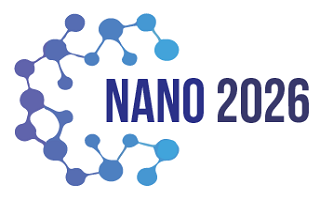3rd World Congress on
Nanotechnology
October 29-30, 2026 | Berlin, Germany

Address: Hans-Grade-Allee 5, 12529 Schonefeld b. Berlin, Germany
Nano 2026

Aksaray University, Turkey
Abstract:
Dipeptide- and protein-based nanomaterials (NMs) have emerged as promising platforms in nanomedicine due to their biocompatibility, biodegradability, and functional versatility. These biomolecule-derived nanostructures enable precise drug delivery, molecular imaging, and targeted therapy, particularly in cancer and neurodegenerative diseases. Dipeptide-based nanoparticles offer structural simplicity and tunable self-assembly properties while protein-based NMs, especially derived from natural sources cost-effective proteins like albumin and lysozyme, offer defined architectures and intrinsic biological functions that enhance cellular uptake and therapeutic efficacy. Despite significant progress, challenges remain in large-scale production, stability, and immune responses. Denatured protein-based NMs, recently developed by our group, stand out as an important development in the field of therapy, especially since they enable more effective encapsulation and longer release of hydrophilic and hydrophobic drugs. Future developments will likely focus on rational design using computational modeling, functional hybrid materials, and stimulus-responsive systems to enhance selectivity, safety, and clinical translation. The integration of these biopolymer-based NMs with personalized medicine promises to revolutionize therapeutic strategies and diagnostics in the near future.
Biography:
Mehmet Odabasi (PhD) is Professor of Biochemistry at the Department of Chemistry, Aksaray University, Aksaray, Turkey. He is the author of more than 80 articles in peer-reviewed journals with a h-index of 29. He has authored chapters in 7 books, 5 of which are international. Odabasi has completed many national and international high-grant projects. His research interests are preparation and surface modification of bio- and synthetic polymeric micro and nanomaterials, and their applications in biomedicine, affinity chromatography, biosensors regarding molecular imprinting, food safety, and the environmental sciences.
